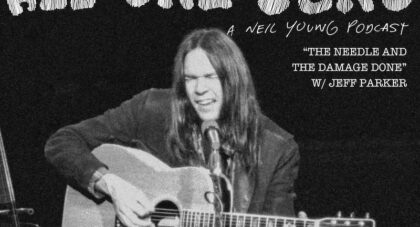We recently caught up with Daniel Villarreal backstage before his show at Yoshi’s in Oakland. His new album, Lados B, came out last month on International Anthem -- its nine tracks drawn from sessions from his first album, Panama ‘77, a tribute to his homeland. A truly epic trio of Villarreal, guitarist Jeff Parker, and bassist Anna Butterss improvise around compositions originated by Villarreal, mostly live with minimal overdubbing . . .
Only the good shit. Aquarium Drunkard is powered by its patrons. Keep the servers humming and help us continue doing it by pledging your support.
To continue reading, become a member or log in.


